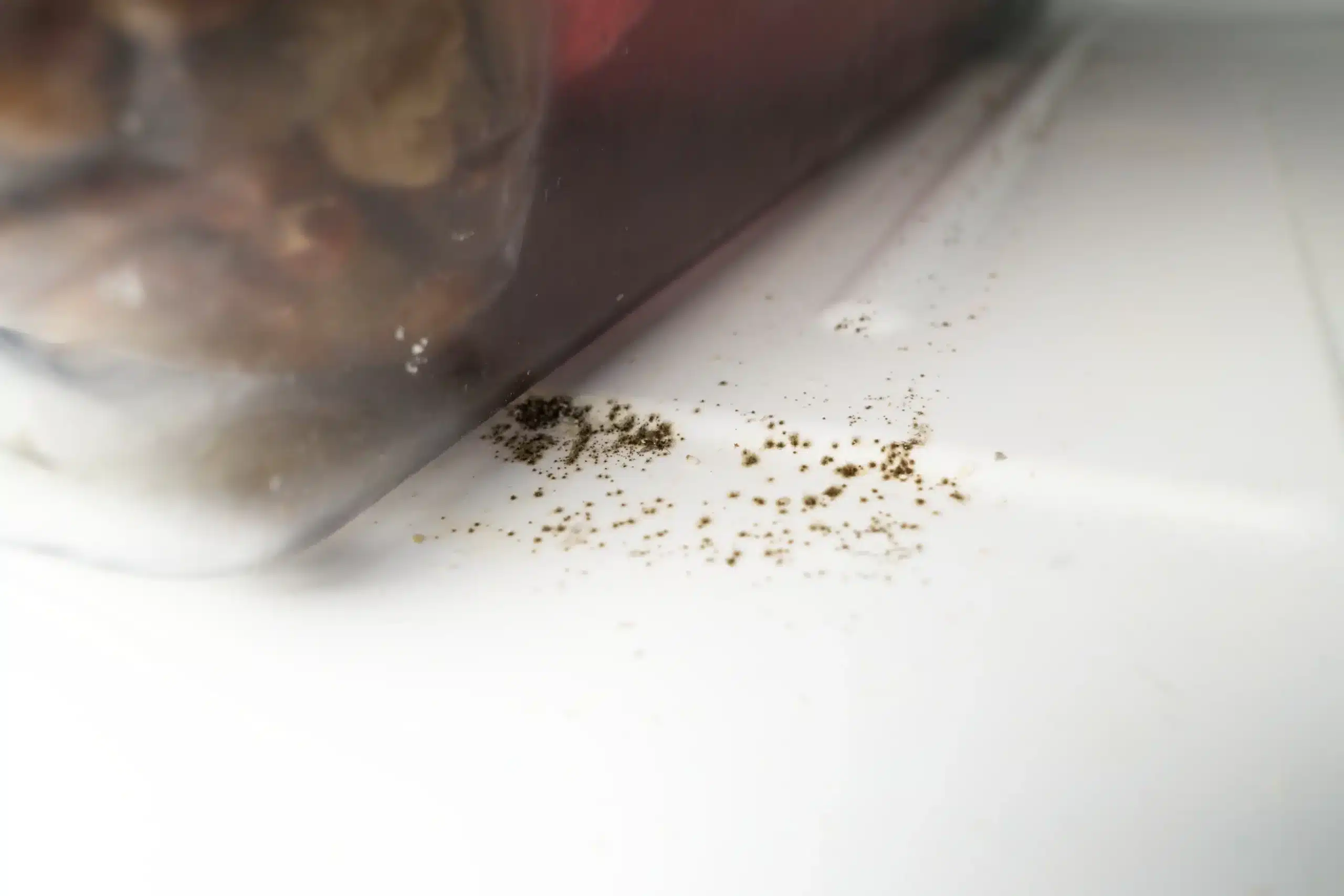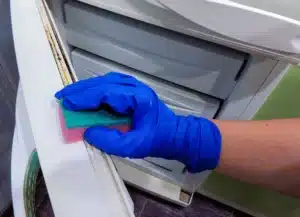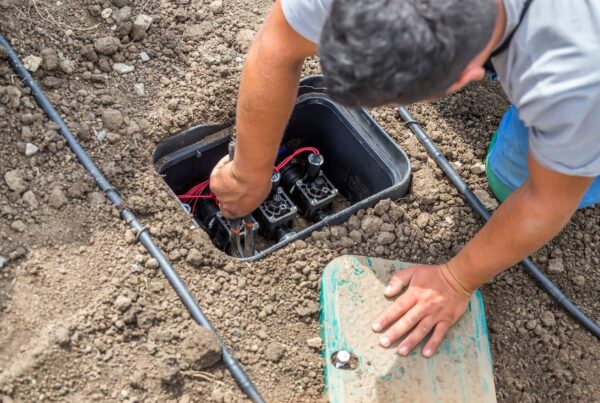
The presence of mold in our living spaces, especially where we store food, is a major concern for many homeowners and tenants alike. Understanding how mold behaves in different environments, including unusual ones like freezers, is essential to maintaining a safe and healthy home. In this article, we will learn about mold and whether mold can grow in a freezer as well as how to prevent the growth.
What is Mold?
Mold is a type of fungus that can be found both indoors and outdoors. It reproduces by releasing spores into the air, which land on surfaces conducive to their growth. Mold typically thrives in warm, damp, and humid conditions, feeding on organic materials.
Can Mold Grow in a Freezer?
While it’s less common than in other parts of the home, mold can indeed grow in freezers, particularly if they are not operating properly or are not being maintained with regularity. Mold growth in a freezer can occur when the appliance is not sealing properly, allowing outside air to enter. This can introduce moisture and mold spores into the environment. Moreover, food spills that are not cleaned up can provide the necessary nutrients for mold to start growing, even at lower temperatures.
What Can I Do to Prevent Mold from Growing in a Freezer?
Preventing mold growth in a freezer involves routine maintenance and proper food storage practices. This includes regularly checking and cleaning the seals, ensuring the freezer maintains its intended temperature, and wiping up any spills immediately.
Also, proper ventilation is key in preventing mold growth. You want to make sure you are able to improve airflow in the area around the freezer, such as using a fan or opening windows.
Another way is to keep an eye on the food in your freezer. You can tell if mold is starting to grow because of a musty odor, discoloration on food items, or visible mold growth on surfaces.
Risks of Mold Growth
There are risks with mold growth. Mold growth in a freezer can spoil food, spread to other areas, and potentially lead to unpleasant odors. More importantly, though, mold can pose significant health risks, particularly to those with allergies or compromised immune systems.
How Long Does It Take Mold to Grow in Freezer?
The time frame for mold to establish itself in a freezer can vary greatly depending on the conditions. If the environment is right — meaning there is enough moisture and nutrient sources available — mold can begin to grow within 24 to 48 hours.
Health Dangers of Mold Growth
Exposure to mold can lead to respiratory issues, allergic reactions, and in severe cases, can exacerbate asthma or lead to opportunistic infections in individuals with weakened immune systems. Additionally, mold exposure can lead to flu-like symptoms, headaches, and even neurological problems in some cases.
Tools You Need to Clean a Moldy Freezer
Before starting the cleaning process, gather the following supplies:
- Rubber gloves: Protect your hands from potentially harmful cleaning chemicals.
- Face Mask: Prevent inhalation of mold spores while cleaning.
- Cleaning solution: Use a mixture of water and mild detergent or a specialized mold cleaner. Check the label for instructions.
- Sponge or cloth: Wipe down the surfaces of the freezer.
- A toothbrush or small brush: Use this to clean hard-to-reach areas or stubborn mold spots.
- Bucket: For mixing the cleaning solution and collecting dirty water.
- Towels: Dry the interior of the freezer after cleaning.
How to Clean Mold from the Freezer?
If you find that you have mold in your freezer, you need to clean it. Here are some steps to do that.
1. Unplug and empty the freezer.
2. Dispose of any contaminated food items.
3. Clean all surfaces with a mixture of hot water and baking soda or a solution made for killing mold.
4. Rinse thoroughly with clean water and dry all surfaces.
5. Keep the freezer door open to air out before restocking and turning it back on.
Benefits of Regular Freezer Maintenance
Regular maintenance of your freezer is not just about preventing mold; it’s a comprehensive approach that ensures the longevity and efficiency of your appliance. Here are some key benefits:
Extended Appliance Lifespan
Regular upkeep can significantly extend the life of your freezer. By keeping components clean and in good working order, you reduce the wear and tear that can lead to premature breakdowns.
Improved Efficiency
A well-maintained freezer operates more efficiently. This means it uses less energy to maintain the desired temperature, which can result in lower electricity bills and a reduced environmental impact.
Consistent Performance
Routine checks and cleaning help maintain consistent performance. This ensures that your freezer keeps food at the correct temperature, preserving its freshness and nutritional value.
Prevention of Unpleasant Odors
Regular cleaning helps prevent the buildup of odors that can occur when food particles are left to decompose. A clean freezer is less likely to harbor smells that could contaminate other foods.
Reduced Risk of Foodborne Illness
A clean and properly functioning freezer reduces the risk of foodborne illnesses by keeping food stored at safe temperatures and preventing the growth of harmful bacteria.
Cost Savings
By maintaining your freezer, you can avoid costly repairs or replacements that might be necessary if the appliance is neglected. Preventative maintenance is almost always more affordable than emergency repairs.
Peace of Mind
Knowing that your freezer is operating correctly provides peace of mind. You can trust that your frozen goods are stored safely and that you’re unlikely to face unexpected disruptions due to appliance failure.
Important Information In The Kitchen
Now that you know about mold growing in a freezer, let’s take a look at a few other areas of recommended maintenance. One of those is the size of the generator to run a freezer and refrigerator. Most people use a 2000-watt generator, but there are ones that are 3000-watt for standard refrigerators.
Another is if a refrigerator needs a dedicated circuit. It does need one to handle the amount of electricity and avoid electrocution.
Lastly, it is important to know what an electrical fire smells like. It smells like electronics, burning plastic, or rubber. If you smell this, it is a good idea to have the home inspected.
When Do I Call a Professional?
If you’re dealing with extensive mold growth, or if the mold keeps returning despite thorough cleaning, it’s wise to call a professional. They can safely remove the mold and also identify and rectify the underlying issue causing the mold growth. However, if the situation is severe or you have health concerns, it is best to seek professional assistance.
Conclusion
Mold in a freezer is an unusual occurrence but can happen and poses serious concerns. Frequent inspection, good hygiene, and correct freezer maintenance are key to preventing mold growth. Should you encounter persistent mold problems, don’t hesitate to seek professional help to ensure your home remains a safe and sanitary space. While a freezer may not always kill mold, mold can grow in this environment. Excessive moisture, damaged door seals, food spills, and poor ventilation can all contribute to mold growth in a freezer. While taking care of the refrigerator, this is a great time to call the Bentley Home Inspection team for a home inspection in East Tennessee and surrounding areas.





